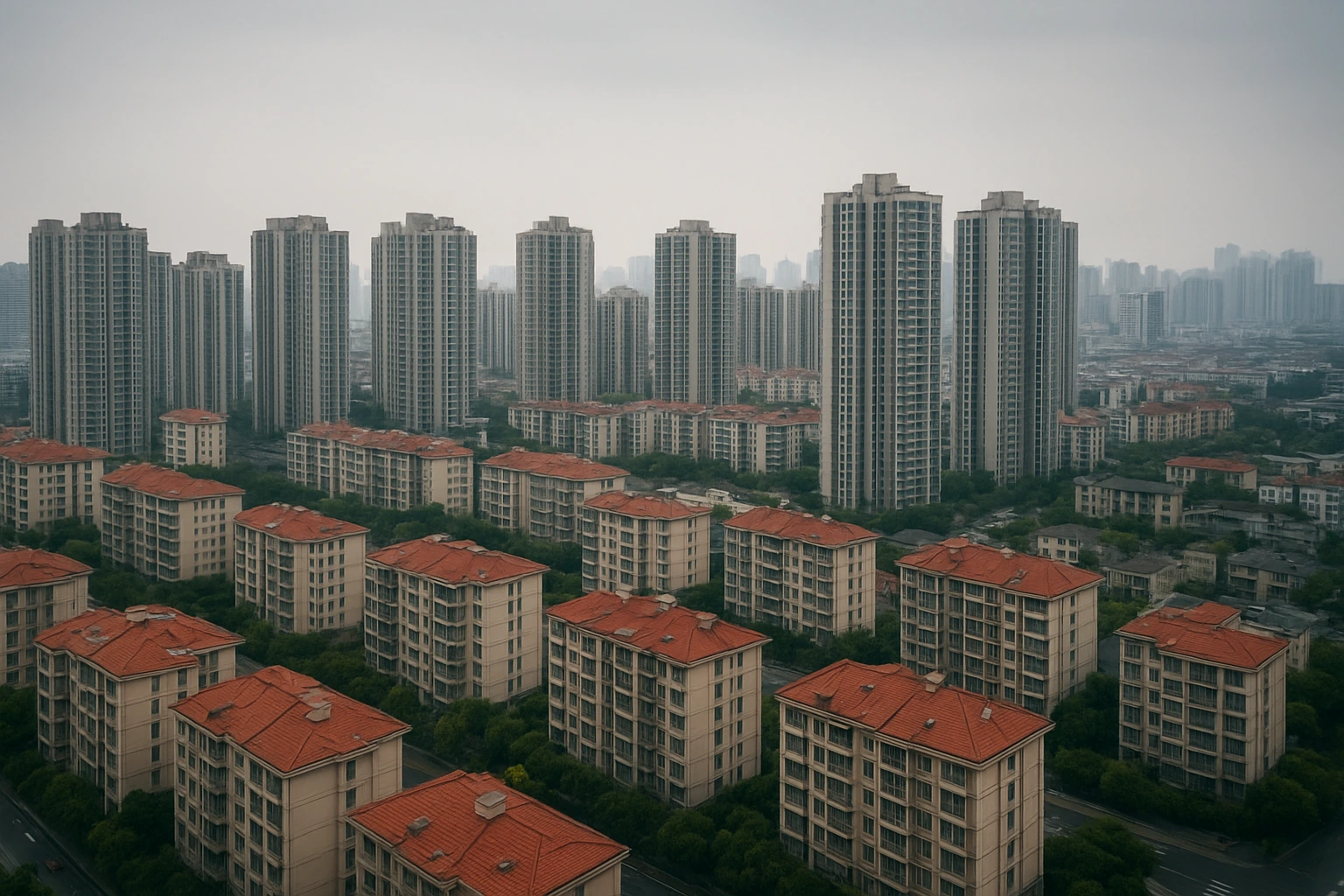BEIJING ~ China’s new home prices dropped at their sharpest pace in almost a year in September, heightening concerns over the country’s prolonged property downturn and its broader economic impact.
Official figures released Monday showed a 0.4 percent month on month fall the steepest decline in 11 months following a 0.3 percent drop in August.
Compared with a year earlier, prices were down 2.2 percent, highlighting the continued pressure on developers and consumer sentiment despite a series of government support measures.
Once a powerful engine of China’s economic growth, the real estate sector has struggled to regain footing since the market began to cool in 2021.
Years of overbuilding, shrinking demand and heavy debt loads have left many developers unable to complete projects or repay creditors.
The property slump has since spread through the broader economy, dampening construction activity and hitting industries such as steel, cement and household furnishings.
With housing wealth long viewed as a cornerstone of middle class stability, falling prices have also eroded consumer confidence and household spending.
Despite multiple rounds of government intervention including lower mortgage rates, relaxed home buying restrictions and funding for urban redevelopment the expected rebound has yet to materialize.
Economists warn that the ongoing decline in home values is deepening the country’s economic challenges. “If property prices, especially in top tier cities, keep falling, households will feel poorer and spend less,” said Hanna Liu, a China economist at Nomura.
That reduction in perceived wealth can further weigh on consumer demand, which is already fragile. Some analysts believe Beijing may soon reintroduce measures aimed at stabilizing prices in major urban centers.
“A modest recovery in first tier cities could help anchor expectations and prevent a broader decline in confidence,” Liu added. Zhang Dawei, chief analyst at Centaline Property Agency, said additional policy easing may arrive in the fourth quarter.
“We could see wider tax deductions for homebuyers or another round of mortgage rate cuts to stimulate demand,” Zhang said. He estimated that overall property transactions might fall about ten percent this year compared with 2024.
According to data from the National Bureau of Statistics, new home prices fell month on month in 63 of 70 major cities surveyed. The 0.4 percent nationwide decline was the steepest since October 2024.
On a yearly basis, new home prices were 2.2 percent lower than in September last year. In the secondary market, prices dropped even faster slipping 3.2 percent in first tier cities such as Beijing and Shanghai, five percent in second tier hubs like Chengdu and Wuhan, and nearly six percent in smaller third tier cities.
The weakness also showed up in other indicators. Property investment for January through September fell at a faster rate than earlier in the year, while total sales volume continued to shrink. The downturn has offset gains in manufacturing and exports, adding pressure to China’s slowing economy.
In Shanghai, Li Yifan, a 34 year old engineer, said he and his wife postponed plans to buy an apartment after watching prices dip in their neighborhood.
“We thought the market would bottom out this summer, but every month it’s cheaper,” he said. “Now we’re worried about buying too soon.”
A property agent in Guangzhou, Chen Rong, said new-home inquiries had dropped sharply since August. “Even discounts and gift packages from developers are not bringing in serious buyers,” she said. “People are cautious they don’t want to catch a falling knife.”
These voices mirror the sentiment among many Chinese households who see housing as both a shelter and an investment. As prices slide, the ripple effects on consumer spending and savings behavior grow stronger.
Economists expect authorities to intensify efforts to stabilize the housing sector as 2025 draws to a close. Measures under discussion reportedly include targeted subsidies for first time buyers, relaxed down payment requirements and expanded financing support for stalled construction projects.
However, analysts caution that a sustainable turnaround may take time. Jeff Zhang, a property equity analyst at Morningstar, said “the next five year plan will likely focus on preventing systemic risks rather than engineering a quick rebound.”
He added that recovery across lower tier cities could take a year or longer, given weaker job markets and oversupply. The Communist Party’s Central Committee began a key closed door meeting this week to shape the country’s 15th Five Year Plan, which is expected to set long term targets for economic stability, housing policy and local development.
China’s housing slump deepened in September as new home prices fell at the fastest pace in 11 months, underscoring the sector’s continuing drag on growth and confidence.
While policymakers have pledged to stabilize the market, the latest data suggest the road to recovery will be long and uneven. For now, declining home values remain a stark reminder of the challenges facing the world’s second largest economy.
